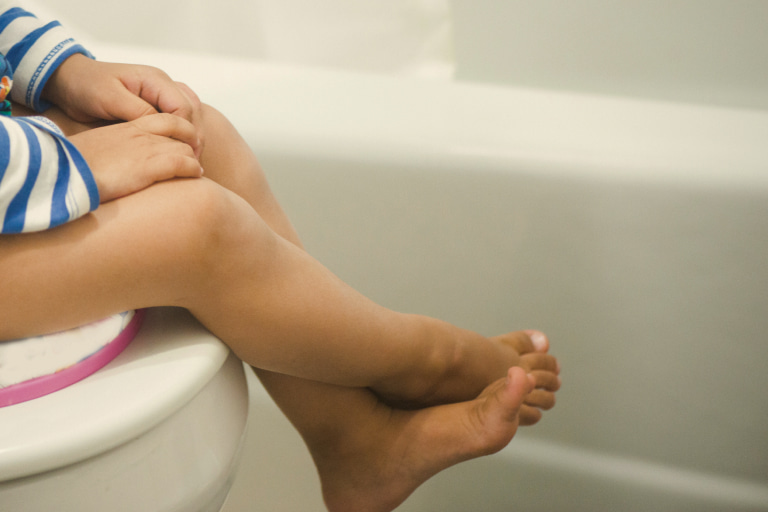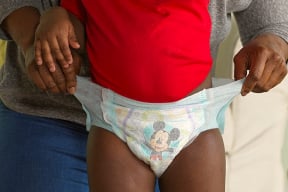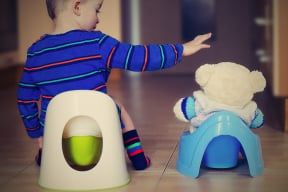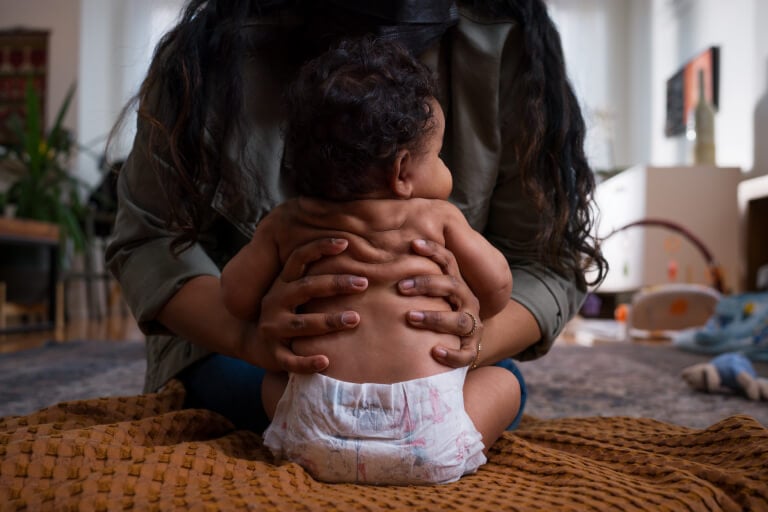One of the most important tools you’ll need to start potty training your child are
Pull-Ups training pants, which are specially designed to teach potty training skills with the protection toddlers need. The line of products has Pull-Ups tailored to the needs of little boys and little girls, as well as training pants especially for nighttime. Stay stocked up on
Huggies wipes, since your child will be used to being cleaned with moist wipes (rather than regular toilet paper). That will help smooth the transition. You’ll also want to invest in a good training toilet that’s sized for your little one. After all, an adult-sized toilet can seem huge to your toddler! A toddler-sized toilet such as the
Summer My Size Potty looks like a “regular” toilet and includes a compartment to hold books and
wipes, has a simulated flushing sound so your little one can get used to it and a removable basin for easy cleaning. You may also want to invest in a
portable travel seat that can convert standard-sized restroom toilets into something more manageable for your little one while you’re out and about. It’s also a good idea to think ahead for some games or rewards to help keep your child motivated during the training. These might include a chart with stickers documenting their progress, some small food treats (like candies) or toys they only have access to when they’ve used the potty.
Pull-Ups offers a ton of resources for incentives, printable charts, and game ideas.








